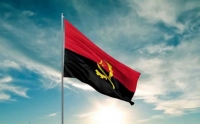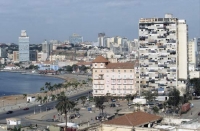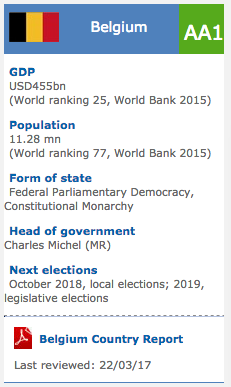Angola: Public investment in Angola
2013/11/18

Public investment in Angola will be subject to a tighter selection process in order to make the application of funds stricter.
The budget execution, particularly in the public investment category, is presently subject to new internal procedures, which are considered to be stricter and include the approval of the country’s President.
This approval is presently a requirement in additional than on stage of the bureaucratic payment processes. The measure, Africa Monitor said, is intended to increase the strictness with which public investments are made, at a time at the same time as the effectiveness of investments is seen as essential for economic diversification.
Last week the Angolan Finance Minister, Armando Manuel, said that the proposed 2014 National Budget included spending of 7.2 trillion kwanzas (US$74.159 billion).
The minister said that the National Budget’s priorities were focused on the social sector (30 % of spending) and infrastructure, and that there would be a budget deficit of no additional than 10 %.
The macro-economic scenario on which the National Budget is based includes Gross Domestic Product (GDP) increase of 8.8 %, which will be driven by increase in the non-oil sector and a rate of inflation of between 7 and 9 %, the minister said.
The kwanza, Angola’s national currency, is expected to remain stable at an exchange rate of around 98 kwanzas to the dollar and the benchmark price for each barrel of oil – Angola’s major export product – is of US$98.
The new update of the IMF’s projections points to Angola accumulating public account deficits in the next four years, at the same time as the country intends to promote long term budget sustainability by expand the taxpayer base of the non-oil sector.
For this to be the case Angola needs to put in place an effective fiscal “machine”, a process which began in 2012 with the implementation of the Executive Programme for Fiscal Reform. It as well needs to not instantly drive non-oil revenues through public investment , eliminate structural constraints and develop the private sector in complementary areas, according to Portuguese bank BPI in its new statement.
The World Bank has said it believes investment needs to increase in Angola in order to boost productivity and create jobs, as investment levels are still very low compared with the rest of the region (13 % of GDP compared to 24 % over the last three years in Sub-Saharan Africa as a whole).
“Accumulated budget surpluses, significant savings and a low foreign deficit ratio are favourable for increasing public investment without affecting the sustainability of public accounts in the mid term. However, it is significant to manage the effectiveness of this investment , specifically through selection, execution and supervision of the projects,” BPI said.
- Related Articles

Africa's Relationship With China Is Ancient History
2017/07/02 In 2002 South Africa's Parliament unveiled a digital reproduction of a map - of China, the Middle East and Africa - that some speculated could be the initial map of the African continent. The Da Ming Hun Yi Tu - the Comprehensive Map of the Great Ming Empire - was drawn up around 1389 during the Ming Dynasty, according to historian Hyunhee Park.
Africa: Making Things Happen at the Bank - 'Not a Talk Shop' - Akin Adesina
2017/07/02 Dr. Akinwumi Adesina is focusing on five areas to achieve the African and world goals for a prosperous continent since becoming president of the African Development Bank - Africa's major public financial institution in September 2015. He was a keynote speaker at this month's Corporate Council on Africa's U.S.- Africa Business Summit in Washington D.C. and moderated a lively panel with five African government ministers. He as well received the Gene White Lifetime Succcess Award from the World Child Nutrition Foundation. This week, he was named the 2017 recipient of the World Food Prize, a prestigious honor that includes a $250,000 award. In an interview in Washington, DC, Adesina discussed the Development Bank's ambitious schedule and his vision for attracting the increase capital Africa needs. Posting questions for AllAfrica was Noluthando Crockett-Ntonga.
Climate change laws around the world
2017/05/14 There has been a 20-fold increase in the number of global climate change laws since 1997, according to the most comprehensive database of relevant policy and legislation. The database, produced by the Grantham Research Institute on Climate Change and the Environment and the Sabin Center on Climate Change Law, includes more than 1,200 relevant policies across 164 countries, which account for 95% of global greenhouse gas emissions.
Angola Angola struggles with contingent liabilities
2017/05/07 General Information GDP USD102.6bn (World Ranking 59, World Bank 2015) Population 25 Million (World Ranking 51, World Bank 2015) Form of state Republic Head of government Jose Eduardo DOS SANTOS Next elections 2017, legislative
Angola Outlook for 2016-17
2016/05/28 The county (Angola) is situated in Southern Africa on the South Atlantic Ocean, with Namibia The county (Angola) is situated in Southern Africa on the South Atlantic Ocean, with Namibia and Democratic Republic of the Congo as neighbor. It has borders with Congo (Kinshasa) for 2511km, Congo (Brazzaville) for 201km, Namibia for 1376km and Zambia for 1110km. Land in Angola is narrow coastal plain rises abruptly to vast interior plateau. The climate is semi arid in south and along coast to Luanda in the north has cool and dry season (May to October) and hot and rainy season (November to April). African languages.
- Angola News
-
- ANGOLA: Angola's Elections Trigger a Crisis of Legitimacy
- ANGOLA: Congo's Sassou hails retiring dos Santos for service to Africa
- ANGOLA: Angolan opposition parties formally challenge election results in court
- ANGOLA: Submarine cable deployed in Angola to link Africa to South America
- AFGHANISTAN: UNWTO: International tourism – strongest half-year results since 2010
- BOTSWANA: Why governments need to support the financial sector to meet the unserved needs of smallholder farmers
- Trending Articles
-
- SOUTH AFRICA: Nigeria and South Africa emerge from recession
- BAHRAIN: Aluminium Bahrain’s Line 6 Expansion Achieves 25 Percent Completion
- CHINA: Chinese-supported infrastructure projects change Zambia's landscape
- NIGERIA: The Security and Exchange Commission approves the 40th Annual General Meeting of Oando PLC
- UZBEKISTAN: Former deputy PM named Uzbekistan Airways head
- EUROPE: Ball Corporation Debuts Three New Aluminium Beverage Can Sizes












